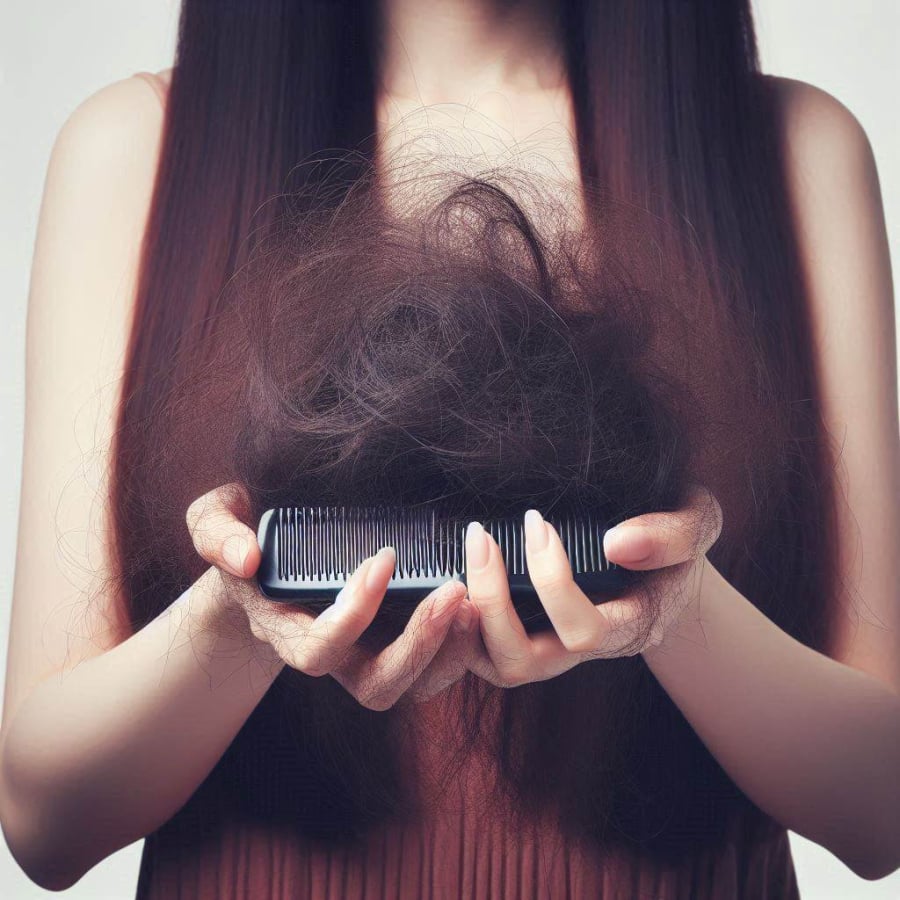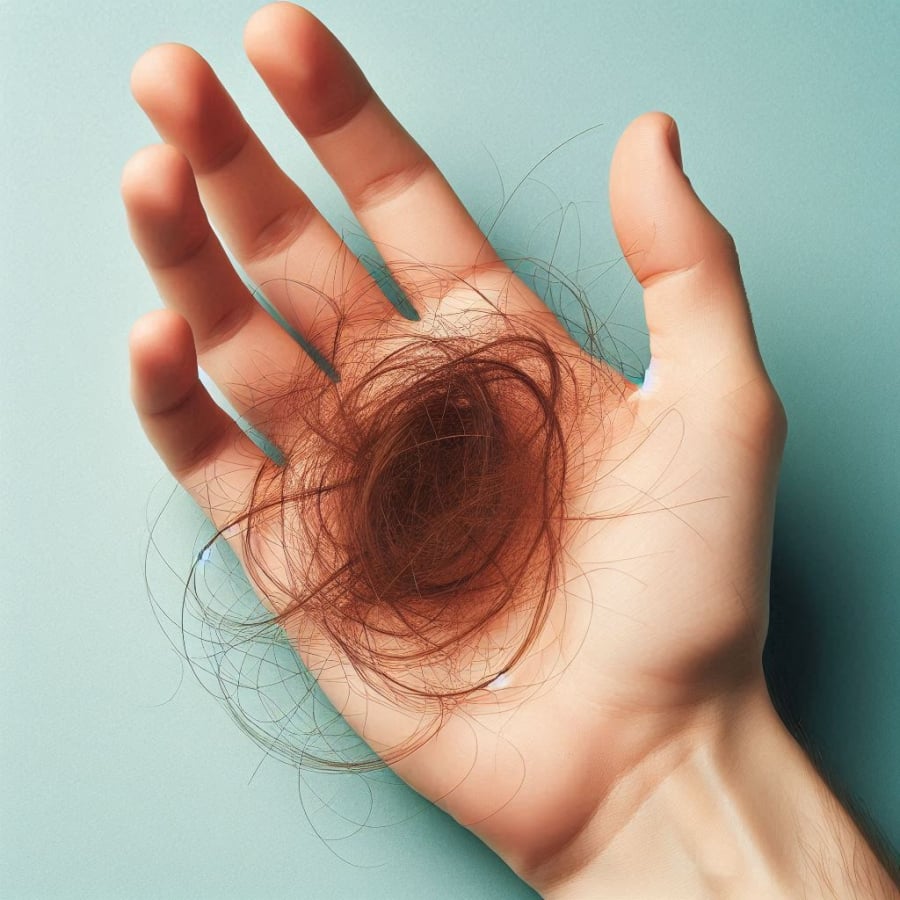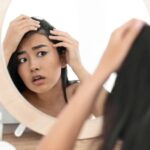Hair Loss: Causes and Solutions
Hair loss is a common occurrence, especially during seasonal changes. Many people worry when they notice increased hair shedding.
The timing of hair loss can vary from person to person and is influenced by multiple factors, including:
Hair Growth Cycle
Each hair strand goes through three phases: growth, rest, and shedding. When a significant number of hairs enter the shedding phase simultaneously, we experience increased hair fall.
Environmental Factors
Changes in weather, humidity, and sun exposure can negatively affect hair health, leading to hair loss.

Changes in weather, humidity, and sun exposure can impact hair health.
Nutrition
Deficiencies in essential vitamins and minerals, such as iron, zinc, and biotin, can contribute to hair loss.
Stress
Prolonged stress disrupts hormones, affecting the hair growth cycle and resulting in hair shedding.
Medical Conditions
Certain health issues like thyroid disorders, psoriasis, and systemic lupus erythematosus can also lead to hair loss.
Distinguishing Seasonal from Medical Hair Loss
During seasonal transitions, especially late autumn to early winter or late spring to early summer, hair loss tends to increase. This can be attributed to abrupt weather changes, causing dry scalp and fragile hair. Moreover, shifting weather conditions can weaken the immune system, impacting hair health.
Seasonal hair loss usually improves as the body adjusts to the new environment. However, persistent hair shedding may indicate underlying health issues.

Seasonal hair loss often resolves as the body acclimates to the new environment.
Hormonal Imbalances
Fluctuations in hormones, particularly androgens, can trigger hair loss. This is common in postpartum and menopausal women, as well as middle-aged men.
Chronic Stress
Stress from work, life, and relationships can elevate cortisol levels, disrupting the hair growth cycle.
Poor Diet
Insufficient intake of vitamins and minerals like iron, zinc, and biotin can lead to weak and brittle hair, making it prone to shedding.
Medical Conditions
Disorders such as thyroid issues, lupus, and anemia can contribute to hair loss.
Medication Side Effects
Certain medications, including cancer treatments and antidepressants, may have hair loss as a side effect.
Chemical Exposure
Excessive use of chemicals for hair perming or dyeing can damage hair follicles.
Genetics
Genetics play a significant role in determining hair density and susceptibility to hair loss.
Signs of Abnormal Hair Loss
The first sign of abnormal hair loss is often increased shedding during washing, brushing, or even sleeping. Hair may appear thinner, exposing the scalp. In some cases, bald patches develop, affecting one’s appearance and confidence. Additionally, the overall quality of hair deteriorates, becoming dry, brittle, and lifeless.

Abnormal hair loss may manifest as increased shedding during daily activities.
Addressing Hair Loss
To mitigate hair loss, consider the following measures:
– Use gentle, natural shampoos to avoid scalp irritation.
– Minimize the use of harsh chemicals like hair dyes or perms.
– Gently massage your scalp to promote blood circulation.
– If hair loss is due to an underlying medical condition, focus on treating the root cause.
– Ensure adequate intake of vitamins and minerals through a diet rich in green vegetables, fruits, and nuts.
– Engage in regular exercise, maintain a healthy sleep schedule, and indulge in enjoyable activities to manage stress.
– If hair loss persists without improvement, consult a healthcare professional for timely diagnosis and treatment.
The Scalp Ages Six Times Faster Than Your Face: Expert-Backed Tips to Assess Your Scalp Age
Aging is a natural process, but that doesn’t mean you can’t take control of it. Did you know that the scalp ages six times faster than the skin on your face? It’s time to pay attention to your scalp’s health and combat the signs of aging. Dr. Tran Vinh Dinh will guide you through the secrets of scalp care, helping you maintain your youthful looks. Don’t let thinning hair and color changes worry you anymore!
The Ultimate Guide to Luscious Locks: Unveiling the Secrets of Chinese Socialite’s Hair Care Regime, Featuring the Mystical “Black Porridge” Elixir
A healthy, voluminous head of hair is something that many women desire. The secret to achieving this lies in an ancient Chinese technique that has been passed down from generation to generation. With this secret, women across China have transformed their thin and limp hair into luscious, enviable locks that turn heads wherever they go.







































